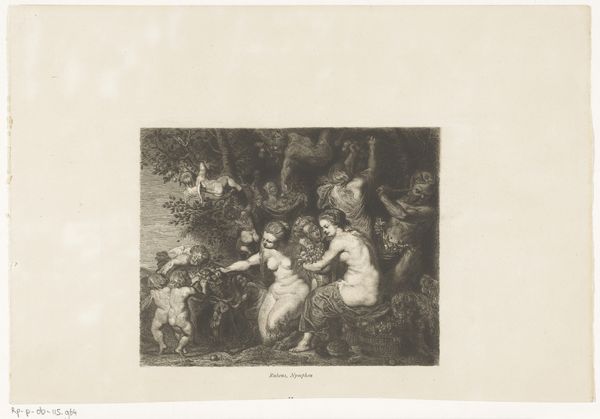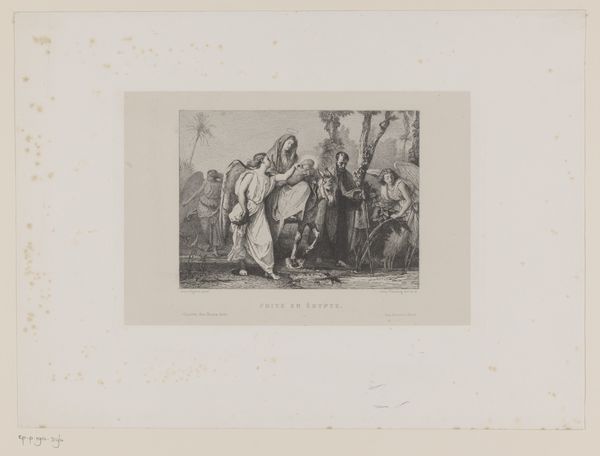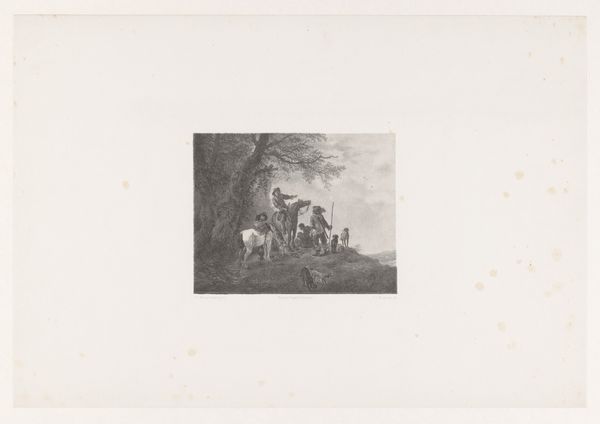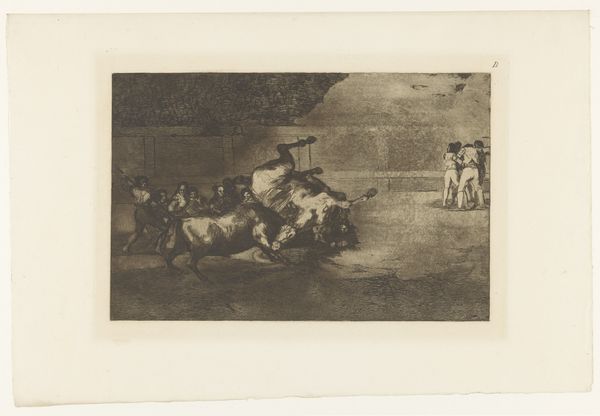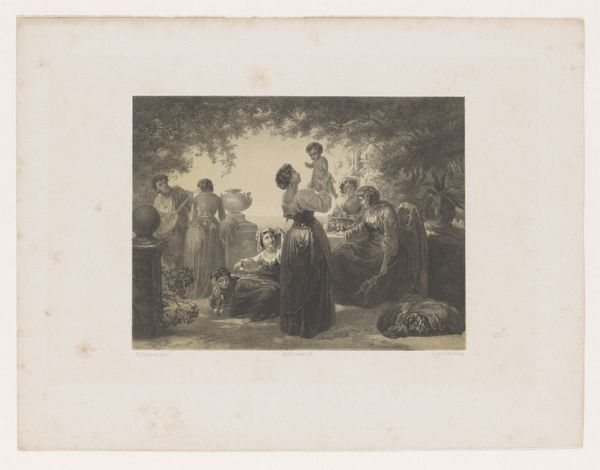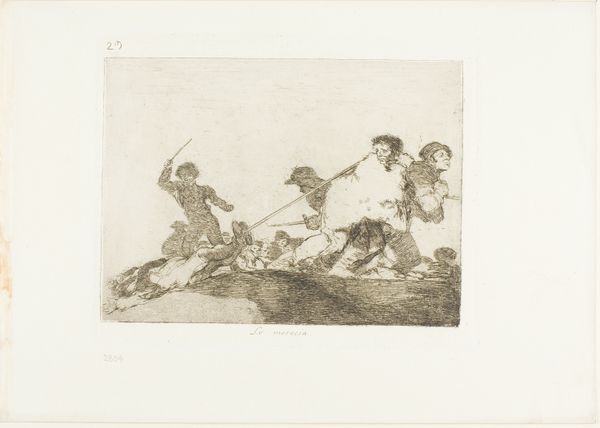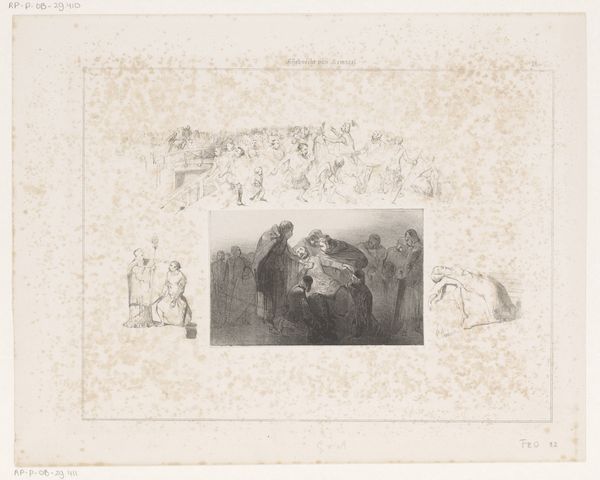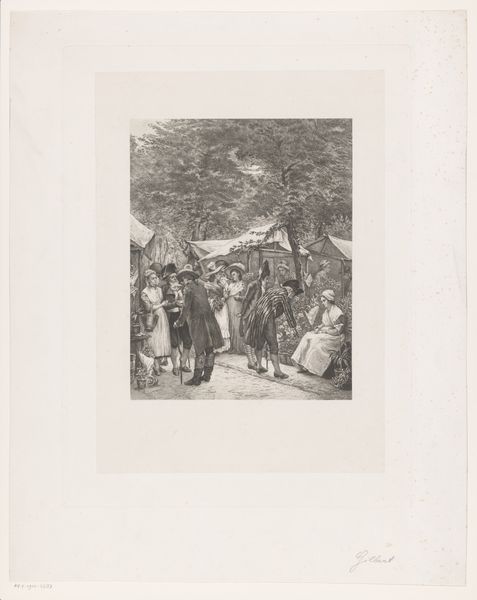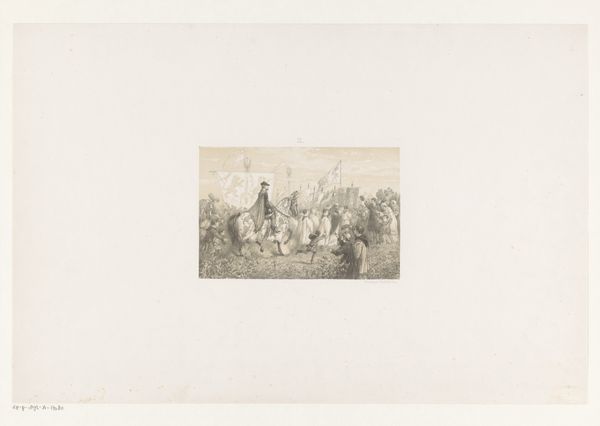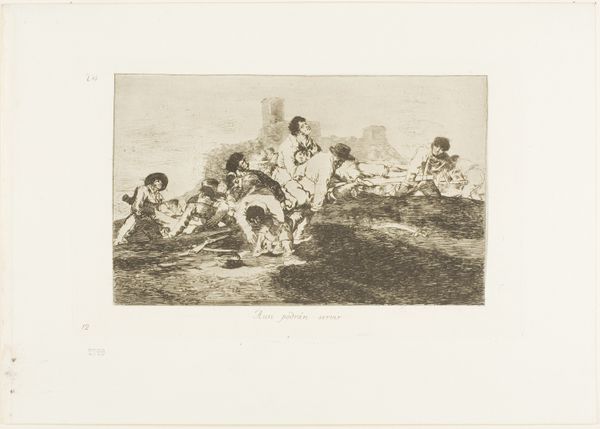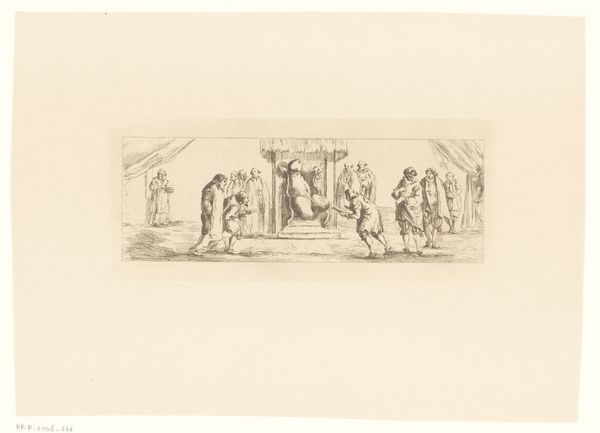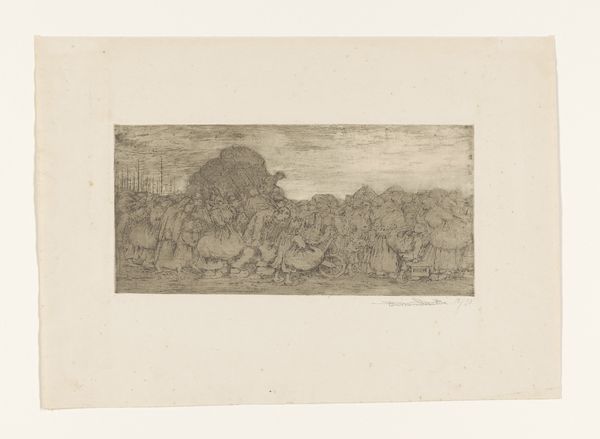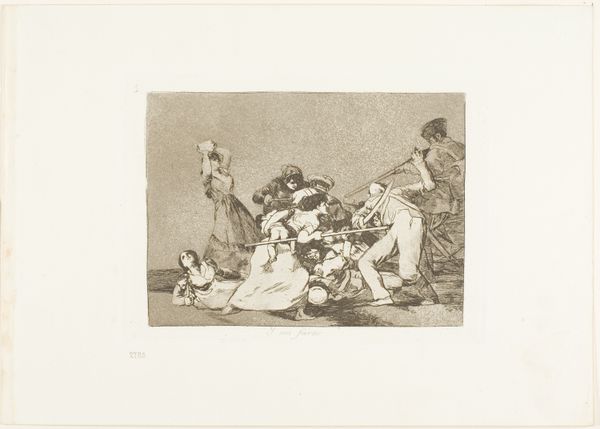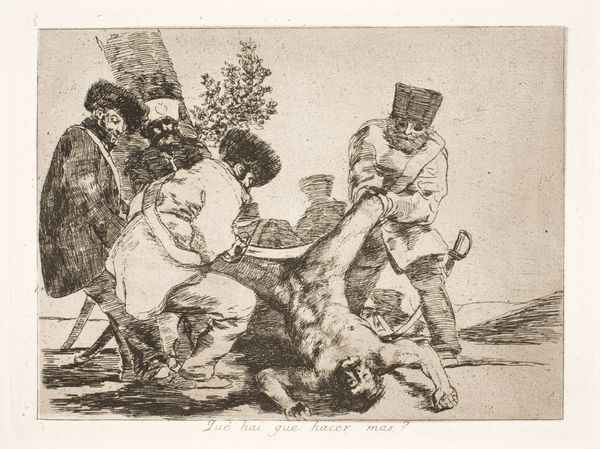
Dimensions: height 549 mm, width 841 mm
Copyright: Rijks Museum: Open Domain
Editor: So, this is "Triumph of Bacchus" by William Unger, dating from 1847 to 1902, an etching that looks like it’s both drawing and print at the same time. It feels… intensely chaotic, almost unsettling. The figures are rushing forward. What's your take on this piece? Curator: Unsettling is a good word! The whole scene seems fueled by unrestrained energy, doesn't it? Unger captures the raw, almost feral abandon associated with Bacchus, the god of wine and revelry. See how the figures are intertwined? There is no center stage, like one of those amazing dreams where everything feels so real, like a history painting morphing into a landscape! But there’s something else here, something deeper. Editor: Like what? I confess I mostly just see a bunch of blurry, overly dramatic bodies! Curator: Haha, well look closer and you’ll see Unger is a master of Romanticism; and there is darkness to be had with all Romantic artwork. Unger lived in a time of great changes, with its own long, messy revolution and evolving social and political values! Perhaps this "Triumph" isn't just about drunken ecstasy but reflects that societal unease. What do you think? Editor: I hadn’t considered that… the chaos reflecting the anxieties of the time. It definitely makes the piece more interesting, less just a party scene and more like… a pressure cooker. Curator: Exactly! Art always exists within a context, you know. This print may be darker than what our modern eyes want to consider! It certainly wasn’t how the upper class liked to see their art at the time. Editor: That’s fascinating. I’ll definitely look at other Romantic art with fresh eyes now. So much for a quick and blurry first impression! Curator: Indeed, that's what makes art so rewarding - peeling back those layers. And I, as the so-called expert here, am delighted to have peeled them back alongside you!
Comments
No comments
Be the first to comment and join the conversation on the ultimate creative platform.
